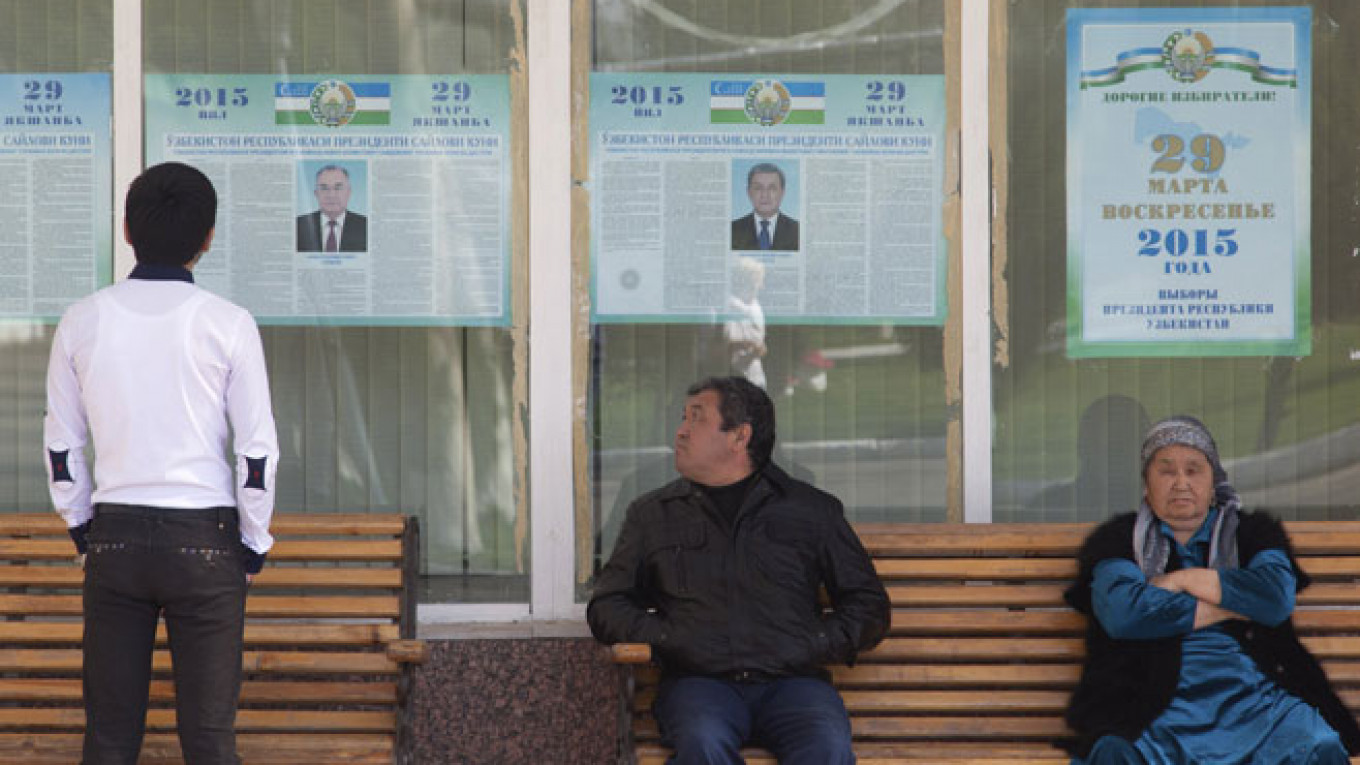Incumbent leader Islam Karimov won Sunday's presidential election in Uzbekistan in a landslide, as expected, according to preliminary results released Monday.
The Central Election Commission said in a statement published on its website that Karimov had garnered 90.4 percent of the vote as nearly 91 percent of the vote was counted by late afternoon.
Even before all of the ballots were counted, Russian President Vladimir Putin's office sent congratulations to the 77-year-old Karimov, who has led the former Soviet republic since 1989, when he was appointed to lead the Uzbekistan Communist Party, and ruthlessly quashed all opposition to his rule.
Uzbekistan relies heavily on Russia, where 3 million Uzbeks live and work — escaping unemployment and extreme poverty in their home country.
The Organization for Security and Cooperation in Europe in a statement issued on Monday criticized the vote as a foregone conclusion for lacking "genuine political alternatives." The OSCE also noted that Karimov, first elected president in 1990, was allowed to run for his fourth consecutive term in office despite the constitutional limit of two consecutive presidential terms.
While Uzbekistan is untroubled by any immediate signs of unrest, the future of the country of 30 million people is colored with uncertainty because of a troubled security situation in neighboring Afghanistan and the lack of a clear succession plan.
Almost all Western media have been barred from reporting inside the country since a violent government crackdown on rioters in the Fergana Valley city of Andijan in 2005 that is believed to have left hundreds dead.
The United States installed a military base in the country after the Sept. 11, 2001 terrorist attacks but was forced to abandon the facility in 2005 when relations between the countries soured.
A Message from The Moscow Times:
Dear readers,
We are facing unprecedented challenges. Russia's Prosecutor General's Office has designated The Moscow Times as an "undesirable" organization, criminalizing our work and putting our staff at risk of prosecution. This follows our earlier unjust labeling as a "foreign agent."
These actions are direct attempts to silence independent journalism in Russia. The authorities claim our work "discredits the decisions of the Russian leadership." We see things differently: we strive to provide accurate, unbiased reporting on Russia.
We, the journalists of The Moscow Times, refuse to be silenced. But to continue our work, we need your help.
Your support, no matter how small, makes a world of difference. If you can, please support us monthly starting from just $2. It's quick to set up, and every contribution makes a significant impact.
By supporting The Moscow Times, you're defending open, independent journalism in the face of repression. Thank you for standing with us.
Remind me later.






